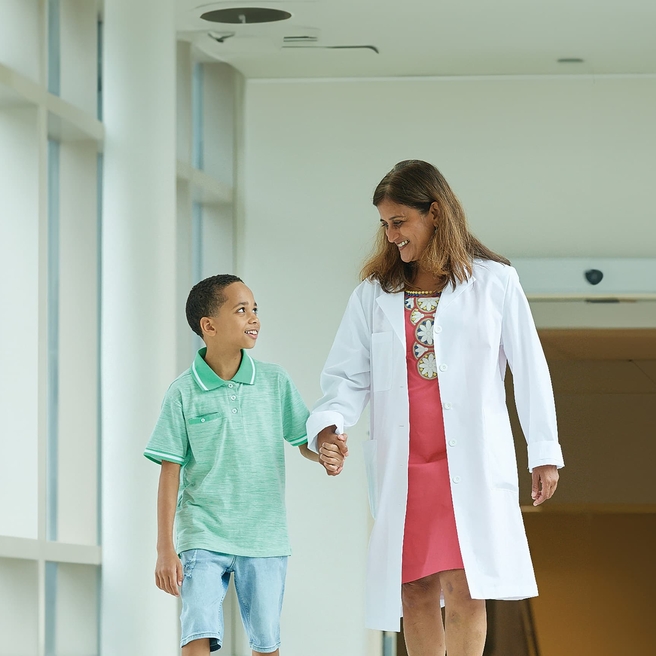What causes chest pain in children and teenagers?
A variety of factors can cause a child or teenager to feel chest pain. In most cases, chest pain in children and teenagers is not caused by a heart problem.
The most common cause of chest pain in children and teenagers is chest wall pain. “Chest wall” is a term for the structures that enclose and protect the lungs, including the ribs and breastbone (sternum) and the muscles of the chest. Gastroesophageal reflux can also cause chest pain or “heartburn.”
We do not always know what causes chest wall pain, but it is typically associated with brief sharp pain that is worse when breathing in. This can occur in a child or teen even if there is no injury or problem with any of these parts of their body. However, injury to the ribs, sternum or other bones in the chest and back also can cause chest wall pain. There are a variety of muscles and joints in the chest area that may be sore, inflamed or strained. Causes can include an infection or injury, such as from sports or a fall.
Testing and diagnosis
Understandably, when your child complains of chest pain, you may worry there is a problem with the heart. In children, though, it’s unlikely that chest pain is caused by a heart problem.
However, do not ignore your child's chest pain. Make an appointment with your general pediatrician and explain what your child is experiencing. The doctor will decide whether further tests or referrals are needed.
What is the long-term outlook
Your general pediatrician might refer you to a pediatric cardiologist, a doctor who specializes in heart problems in children. The pediatric cardiologist will listen to your child’s heart and ask questions about the circumstances that led to the chest pain, your child’s medical history, and the family medical history. The doctor will read an electrocardiogram (ECG or EKG), a record of the electrical activity of your child’s heart, to determine whether a heart problem may be causing your child's symptoms.
The doctor might order other tests, such as an exercise stress test, echocardiogram, or chest x-ray, or might send your child home with a transtelephonic monitor or a Holter monitor to continuously record your child's heart rhythm as they goes about their normal activities. However, the vast majority of children will not need further testing and will likely be found to have a normal heart.

Signs of Heart Problems
Learn what symptoms could be signs of heart problems, and when to see a pediatrician or a pediatric cardiologist.
Resources to help
Cardiac Center Resources
We know that caring for a child with a heart condition can be stressful. To help you find answers to your questions – either before or after visiting the Cardiac Center – we’ve created this list of educational health resources.
Reviewed by Amy H. Schultz, MD, MSCE
Reviewed on 01/29/2025
